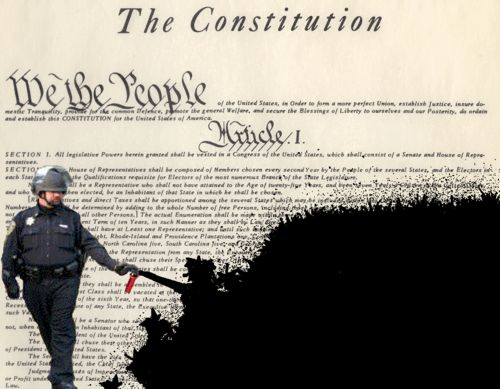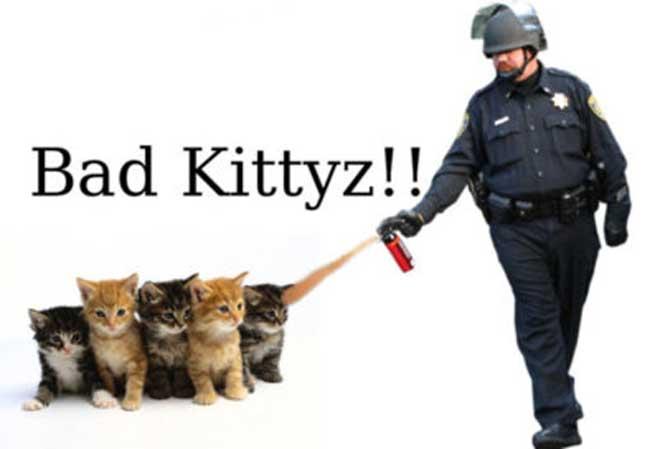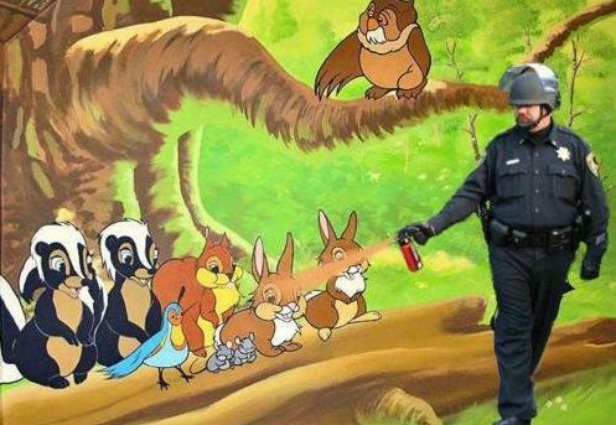bucs90
Gold Member
- Feb 25, 2010
- 26,545
- 6,030
- 280
http://www.albany.edu/scj/jcjpc/vol13is1/Dobrin.pdf
What do you know...August Vollmer, Chief of Police in Berkeley California, was the "father of professional policing" which was founded in the 1920's in response to brutal, corrupt American policing in the early 1900s.
To ELIMINATE corruption, brutality and criminal acts within the ranks, he advocated "militarizing" police agencies, using the same structure, same STRICT discipline and almost NO room for personal flexibility, which woudl lead to ahderence to dept policies and laws, thus, drastically reducing corruption, brutality.
Many dont realize just how brutal and corrupt US policing once was, because back then youtube, facebook and cell phone cams didn't exist. But the paramilitary model of policing WORKS to reduce corruption and crime within the ranks by A) Strict discipline and B) Attracting recruits who prefer a disciplined, integrity filled environment over the early 1900's "anything goes" model of policing. It was meant to create a "by the book" environment where street cops did not just do it their own way. And 90 years later, it's worked. While the few bad incidents are glorified on youtube and media, the number of incidents of police brutality and corruption are DRASTICALLY down from the early 1900's, through the 60's, 90's, to current date. Lawsuits, cell cams, youtube, and increased integrity in the ranks have all combined to reduce police brutality and corruption to record lows.
Then, in the 70's, "Community Policing" came about, where the "militarized" model was working to reduce corruption, the strict discipline had street cops doing only what was asked, and crime went up as a result because cops weren't being innovative or doing anything that may risk getting then in heat with the commanders.
So, "Community Policing" was introduced, which was a kinder, gentler, but more involved style. Cops were expected to have dialogue with the people, interact, get to know the neighborhood. The image of the cop became less "militarized", but thus, citizens viewed them more like Barney Fife becauase they were tasked with doing non-criminal things like neighbors complaining about a dog barking, or parents calling 911 because their 10 year old wont do his chores and they expect the cop to "talk with him a while".
Eventually, citizens lost some bit of the perception of the "militarized" cop, and viewed them less and less as "here to protect us" and more as "here to deal with our problems".
Now, we have a hybrid, militarized but community oriented model. A patrol cop who is part-time swat member, but part time out listening to John Doe whine about his kid coming home after curfew and demanding the cops "do something about it". So citizens get pissed when cops flip that switch back into pre-70's "paramilitary" model in situations where they need just that- adherence strictly to dept policy, such as in a mass crowd like OWS or Tea Party where things can go very wrong very fast. Strict discipline, "by the book". No other way to handle volatile situations like that.
But dont worry guys, Barney Fife and Andy Griffith will be back on patrol soon.
And you have a Berkeley Police Chief to thank for it all.
What do you know...August Vollmer, Chief of Police in Berkeley California, was the "father of professional policing" which was founded in the 1920's in response to brutal, corrupt American policing in the early 1900s.
To ELIMINATE corruption, brutality and criminal acts within the ranks, he advocated "militarizing" police agencies, using the same structure, same STRICT discipline and almost NO room for personal flexibility, which woudl lead to ahderence to dept policies and laws, thus, drastically reducing corruption, brutality.
Many dont realize just how brutal and corrupt US policing once was, because back then youtube, facebook and cell phone cams didn't exist. But the paramilitary model of policing WORKS to reduce corruption and crime within the ranks by A) Strict discipline and B) Attracting recruits who prefer a disciplined, integrity filled environment over the early 1900's "anything goes" model of policing. It was meant to create a "by the book" environment where street cops did not just do it their own way. And 90 years later, it's worked. While the few bad incidents are glorified on youtube and media, the number of incidents of police brutality and corruption are DRASTICALLY down from the early 1900's, through the 60's, 90's, to current date. Lawsuits, cell cams, youtube, and increased integrity in the ranks have all combined to reduce police brutality and corruption to record lows.
Then, in the 70's, "Community Policing" came about, where the "militarized" model was working to reduce corruption, the strict discipline had street cops doing only what was asked, and crime went up as a result because cops weren't being innovative or doing anything that may risk getting then in heat with the commanders.
So, "Community Policing" was introduced, which was a kinder, gentler, but more involved style. Cops were expected to have dialogue with the people, interact, get to know the neighborhood. The image of the cop became less "militarized", but thus, citizens viewed them more like Barney Fife becauase they were tasked with doing non-criminal things like neighbors complaining about a dog barking, or parents calling 911 because their 10 year old wont do his chores and they expect the cop to "talk with him a while".
Eventually, citizens lost some bit of the perception of the "militarized" cop, and viewed them less and less as "here to protect us" and more as "here to deal with our problems".
Now, we have a hybrid, militarized but community oriented model. A patrol cop who is part-time swat member, but part time out listening to John Doe whine about his kid coming home after curfew and demanding the cops "do something about it". So citizens get pissed when cops flip that switch back into pre-70's "paramilitary" model in situations where they need just that- adherence strictly to dept policy, such as in a mass crowd like OWS or Tea Party where things can go very wrong very fast. Strict discipline, "by the book". No other way to handle volatile situations like that.
But dont worry guys, Barney Fife and Andy Griffith will be back on patrol soon.
And you have a Berkeley Police Chief to thank for it all.




